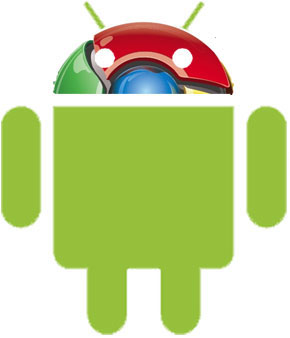Chrome Netbooks, Tablets Expected This Year [CONFIRMED]

This is a friendly reminder that while Android seems to have taken over mother earth recently, Chrome could be a dark horse this holiday season. Last night we saw the launch of Sony Internet TV, essentially an iteration of Google TV, featuring Android 2.1 and eventually featuring Android Market. But Google TV is also pumped full of Chrome juice, something that you can’t really miss when searching your Google TV (Omnibar FTW).
I’ve been surprised at the lack of excitement for Google TV in the Android universe but I think the phans will come around once the product is in the streets. And when Android Market lands on the units – watch out. But while Android and Chrome combined to form their Google TV love child, it doesn’t say much about Google’s overall Chrome initiative.
What initiative you might ask? A little something the world forgot about called Chrome OS. To jog your memory, perhaps you should watch this video from November 19th, 2009 where they show sample products and promise Chrome OS products in one year time, including launch plans.
It’s almost a year later and Google has confirmed that Chrome OS hardware will launch before the end of the year:
In terms of Google Chrome OS schedule, we are very happy with the progress of Chrome OS and expect devices will be available later this year. We’ll have more details to share at launch.
In August, Google filed for the Speedbook Trademark, and it’s looking like Chrome OS Tablets could be included in the mix along with Netbooks. I’ve said before that the launch of the iPad will only help Android and Chrome have success on Netbooks, Tablets and other form factors. But now, as Chrome hardware waits silently and patiently in the shadow of Android, I think it’s a great time to revive the discussion about the intersection of Android Avenue and Chrome Court.
While Sergey Brin said they “will likely converge over time,” Eric Schmidt had this to offer:
In fact the Chrome OS is a different product and a different target market. One way to think about it is that Android is really targeted towards people who are phone centric… and we all understand what phone-centric means: it’s a mobile device, it has a Wi-Fi connection and you carry it. If it isn’t a phone it’s something like a phone – a tablet or something like that.
The Chrome OS is really targeted at the PC/Netbook-centric user. And that’s somebody who is at a desk, they’ve got a keyboard or something like that, they’ve got a reasonable screen and a they’ve got a good processor.
The uses are different and we don’t think the two completely overlap.
That was November 23rd, 2009 and things were a lot different then. That’s when Google still thought they could revolutionize the method of mobile phone buying. They’ve since abandoned that and more recently taken a different approach that pretty much admits defeat in terms of selling phones direct.
Android has, up until now, been mainly featured on smartphones with 4.3-inch screens or smaller. With the launch of Google TV, the biggest takeaway was that the largest screen in your house wasn’t getting the attention it deserved. Google TV would make better (and awesome) use of your television… with the help of Android and Chrome together. But what about screen sizes in between? What ABOUT netbooks? What ABOUT tablets?
Android netbooks have, thus far, failed pretty miserably. Android tablets it appears, with offerings like the Samsung Galaxy Tab, could become pretty popular. It’s clear that the use-case for Chrome OS is different than that of Android, but might creating Android this and Chrome OS that further confuse consumers who are still trying to figure out what “Droid” really means? Or could Google be working on a hybrid solution for larger devices that makes use of both Android and Chrome, similar to the nature and integration of Google TV?
I don’t have all the answers, but if Google makes good on their promise to release Chrome OS products later this year we won’t have long to wait. But as we saw with the Nexus One experiment, Google isn’t too proud to admit they miscalculated and take a newer and re-calculated approach, and they should be applauded for that. Either way, until we know the bottom line, I’m asking you again one year later…
What will we see from Chrome and Chrome OS this holiday season and how will it affect Android?
